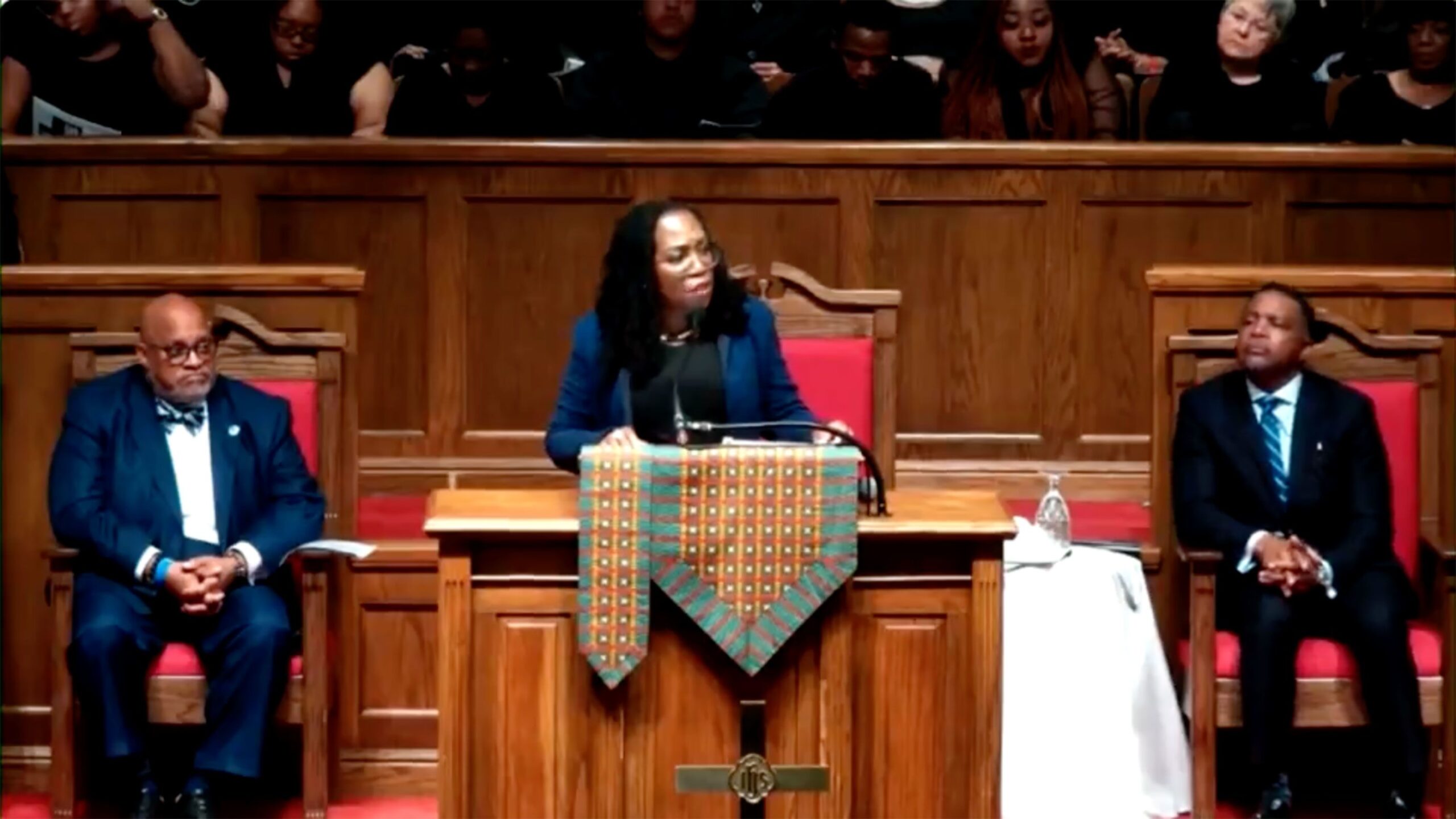
By Devan Cole, CNN
(CNN) — Supreme Court Justice Ketanji Brown Jackson on Friday implored Americans to “own even the darkest parts of our past” in a speech commemorating 60 years since the deadly 16th Street Baptist Church bombing.
“History is also our best teacher. Yes, our past is filled with too much violence, too much hatred, too much prejudice. But can we really say that we are not confronting those same evils now?” Jackson said at the church in Birmingham, Alabama.
“We have to own even the darkest parts of our past, understand them and vow never to repeat them. We must not shield our eyes. We must not shrink away lest we lose it all,” she said.
The justice didn’t invoke a particular case, but as a whole her speech nodded to efforts targeting the teaching of critical race theory in schools and books about the struggle for racial equality and other topics.
“If we are going to continue to move forward as a nation, we cannot allow concerns about discomfort to displace knowledge, truth or history. It is certainly the case that parts of this country’s story can be hard to think about,” she said. “I know that atrocities like the one we are memorializing today are difficult to remember and relive. But I also know that it is dangerous to forget them.”
At times, Jackson, the first Black woman to serve on the Supreme Court, drew a personal connection to the tragedy, in which a bomb exploded at the church on September 15, 1963, killing Denise McNair, Cynthia Wesley, Addie Mae Collins and Carole Robertson. Nearly two dozen others were injured.
“As a mother of two young women who will always be my little girls, I can imagine no greater horror than to lose a child this way,” Jackson said.
“And even now, six decades later, the magnitude of that tragic loss weighs heavily on all of us because those girls were just getting started. They could have broken barriers. They could have shattered ceilings. They could have grown up to be doctors or lawyers or judges appointed to serve on the highest court in our land,” she added.
The justice spoke about what she sees as her “solemn responsibility” to inspire young people.
“To think about what is possible. To understand the law and to recommit themselves to the Constitution and its core values: the rule of law, democracy, freedom, justice and equality,” Jackson said.
She also said she had never been to Alabama, but was drawn to accept the speaking invitation.
“I have also come to Alabama to bring a message about what it is going to take … to ensure that those core constitutional values withstand these times. In a nutshell, I’ve come to Alabama to commemorate and mourn; celebrate and warn,” she said.
“I felt in my spirit that I had to come,” Jackson said.


